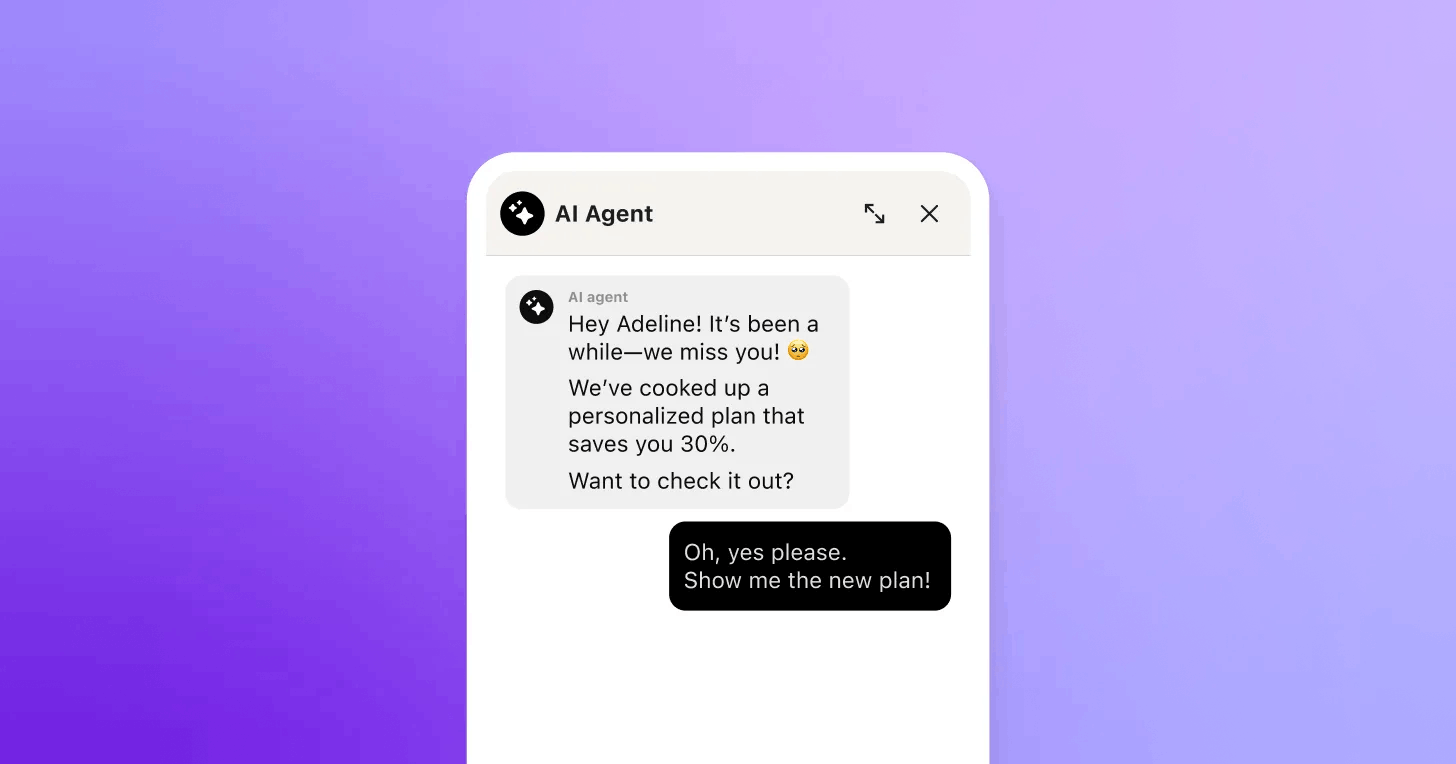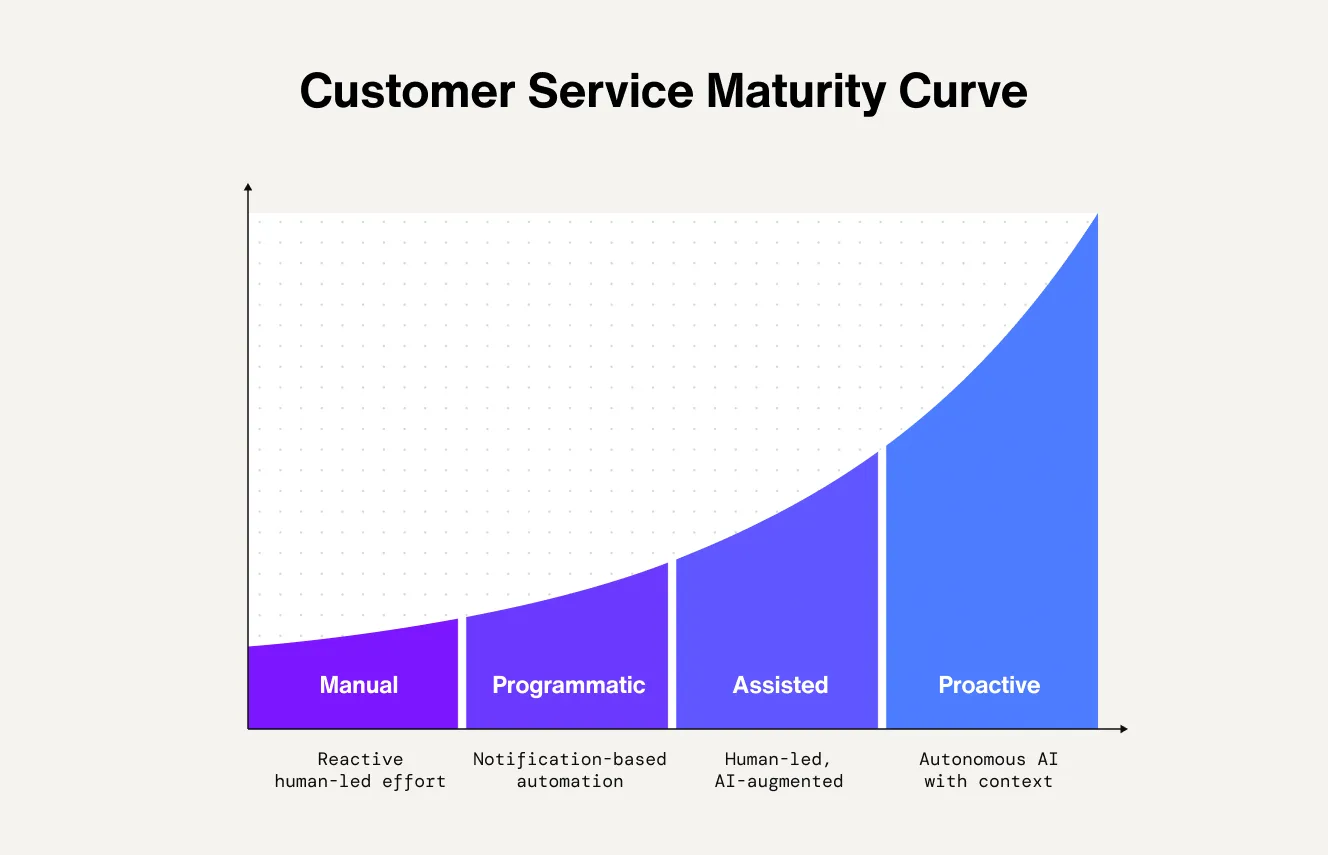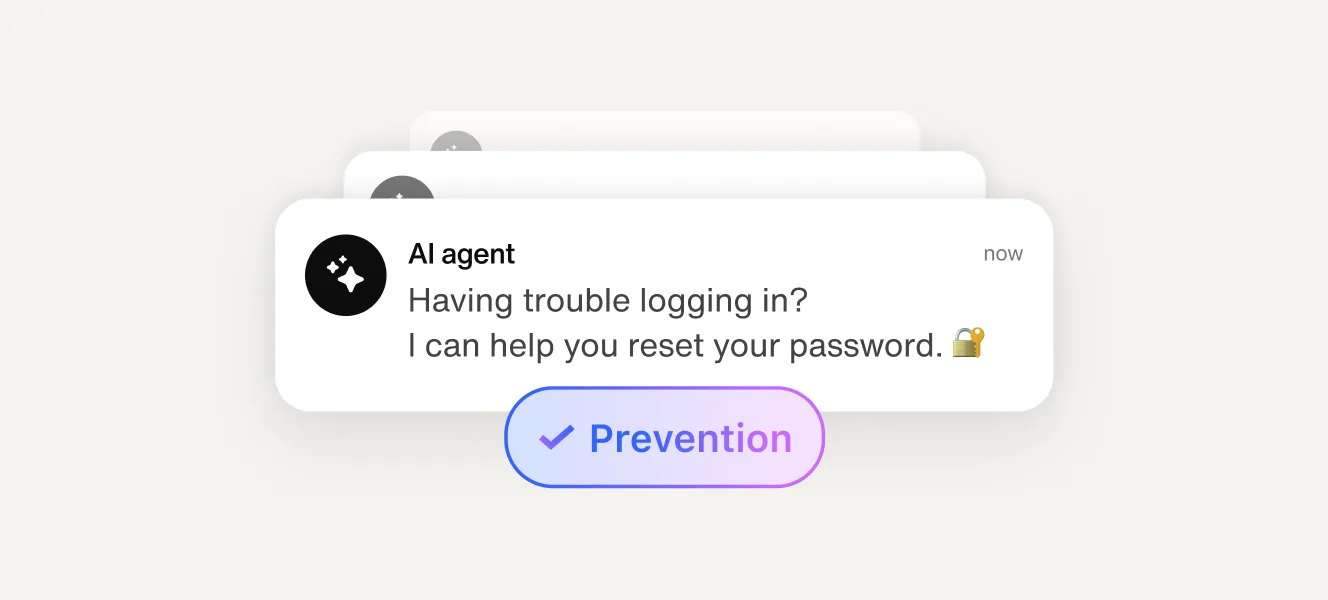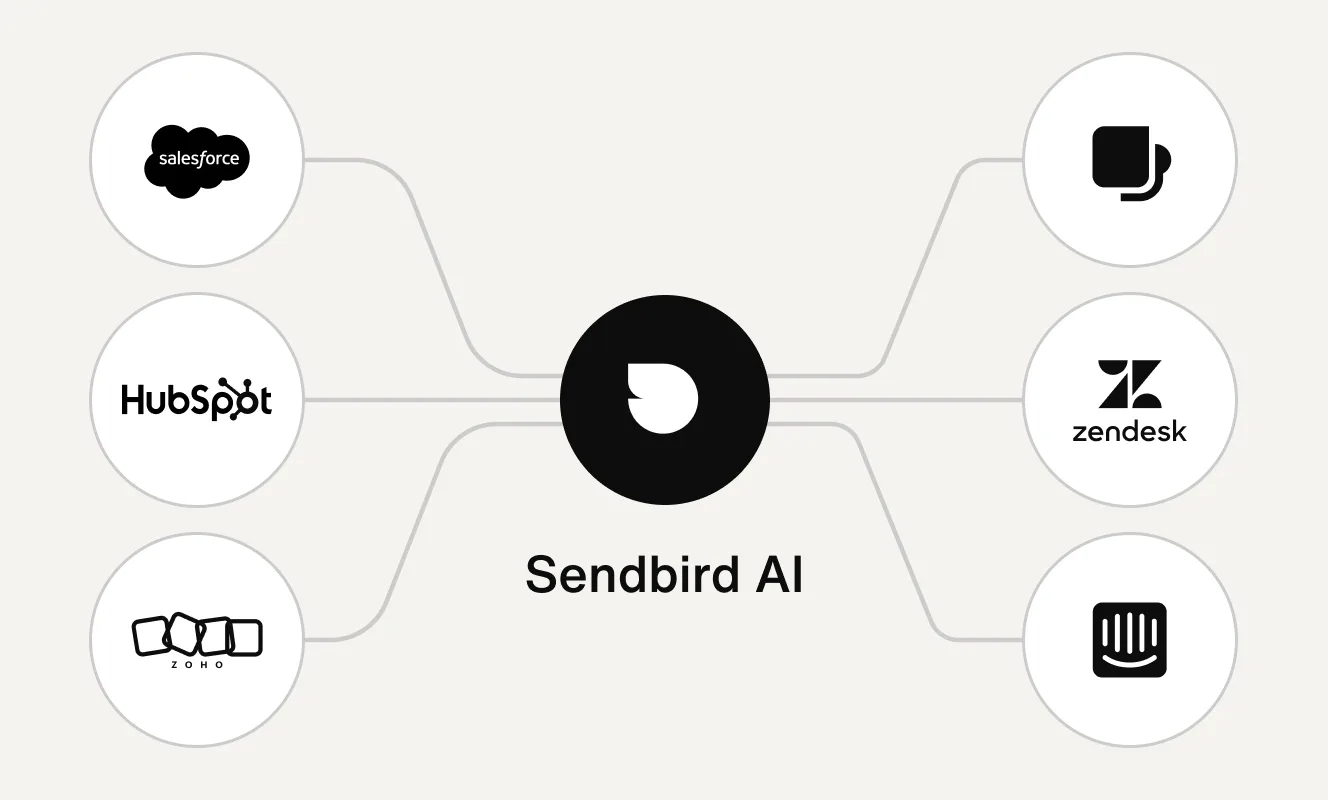From messaging to intelligence: Sendbird introduces proactive AI customer service

As customer expectations rise and digital channels multiply, businesses are racing to keep up with real-time, hyper-personalized communication. However, most companies are still stuck in reactive mode, resolving issues only after they arise. Sendbird is flipping that script. By evolving its battle-tested omnichannel communications infrastructure into the foundation of an omnipresent AI agent platform, Sendbird helps companies move from reactive support to proactive, intelligent customer service.
Agentic proactive customer service: The new marketing
Today, customer service is the new marketing. Every customer interaction is a chance to build brand loyalty, reduce churn, and even increase revenue. According to Arion Research's report, 75% of customers are more engaged when brands use their preferred communication channel, and 69% are more likely to make a purchase. Companies know they must connect with customers throughout their journey. Modern service needs to be omnichannel, contextual, and anticipatory. Enter proactive AI customer service.
What is proactive AI customer service?
Proactive AI customer service is when conversational, autonomous AI concierges can intervene at critical moments of friction, personalize engagement based on real-time data, and free up human agents for more complex tasks. This shift to autonomous, proactive experiences quickly becomes the gold standard for brands that want to lead in customer experience (CX).

Why proactive AI support matters
According to industry research, 86% of customer service leaders report increased call volumes, yet hiring remains a challenge due to labor shortages and tightening margins. Customer service teams are expected to do more—with fewer resources.
Agent burnout is real. As interaction volume grows across channels, agents are overwhelmed, increasing turnover and diminishing the customer experience. Jeff Toister, in his book The Service Culture Handbook, claims that 58% of agents are at risk of burnout, and 28% are at risk of severe burnout. Customers, meanwhile, expect fast, personalized resolutions across web, mobile, SMS, email, WhatsApp, and more—with 75% of them using multiple channels per service interaction.
AI agents aren’t just a cost fix—they’re a growth enabler. Klarna’s AI assistant now handles two-thirds of all customer service conversations, performing the equivalent work of 700 full-time agents, and is projected to deliver $40 million in annual profit improvements.
Analysts agree: Forrester urges organizations to integrate AI into end-to-end workflows—not just surface-level automation. Gartner predicts that 85% of service leaders will pilot conversational AI by 2025, signaling a widespread shift toward autonomous CX.

8 major support hassles solved with AI agents
What are the benefits of proactive AI customer service?
Proactive AI customer service offers practical advantages across support, operations, and customer experience. Businesses that adopt it can build stronger customer relationships at scale.
Faster resolutions, higher CSAT. By detecting intent, friction, or confusion in real time, AI agents can resolve issues before they snowball. No more waiting in queues or digging through help centers—customers get what they need, when they need it.
Happier support teams. Proactive AI agents take on repetitive, low-value tasks, lifting the burden of routine work from human teams. This not only prevents burnout—it creates space for agents to focus on more stimulating, high-impact work like fine-tuning AI performance, resolving complex issues, and contributing to continuous service improvement. As a result, human roles evolve to become more strategic and rewarding.
Increased operational efficiency. AI concierges run 24/7, scale instantly, and handle spikes in volume without requiring additional headcount. This enables leaner support teams and more predictable cost structures.
Revenue growth through smarter engagement. Proactive AI uncovers revenue moments teams often miss. This includes rescuing disengaged users, prompting timely upgrades, or preventing churn before it starts. It turns overlooked touchpoints into growth opportunities.
Consistent, omnichannel experiences. Proactive AI agents can maintain context across SMS, WhatsApp, email, and in-app chat—delivering consistent, brand-aligned service no matter where the conversation starts or ends.
Proactive AI helps companies do more with less while delivering the type of customer experience that builds loyalty and drives growth.
Examples of proactive AI customer service
Here's how proactive customer service powered by agentic AI transforms customer service in different industries:
Ecommerce and retail: An AI concierge detects a shipping delay and reaches out before the customer notices, offering to wait, cancel, or get a coupon for a future purchase. It also alerts customers when their favorite items go on sale or are restocked.
-> Check this blog about AI in ecommerce
Healthcare: An agent checks in with patients identified as high-risk and provides proactive health coaching to reduce emergency visits. It also reaches out about prescription refills or upcoming appointments, helping reschedule or adjust—all without the patient making a call.
-> More about healthcare AI in this blog

On-demand services: An AI concierge, aware of a customer’s ordering habits, anticipates their next order and contacts them to alert them that their favorite meal is out of stock or if traffic delivery delays are expected, offering help with alternatives or timing.
-> Download this ebook on how to overcome the gig economy's communication challenge
Fintech: An AI agent proactively checks in after a failed transaction or flagged activity, guiding the user through the next steps, like verification or dispute filing. It also notifies users ahead of time of recurring charges when their balance is low, providing quick-fix options.
-> Read about AI in finance
To effectively implement proactive AI customer service, companies need to ensure AI agents are built on top of a robust infrastructure.

Reinvent CX with AI agents
Proactive AI customer service built for scale
Sendbird isn’t new to online communication. Its platform supports over 300 million monthly active users and powers in-app chat, voice, video, and omnichannel business notifications for companies like DoorDash, Noom, Redfin, Maya, Paytm, and Yahoo.
Today, Sendbird is layering generative and proactive AI on top of its infrastructure, creating autonomous agents that work across SMS, e-mail, WhatsApp, web, and mobile.
Backed by a proven communication infrastructure, Sendbird’s AI agent platform delivers low-latency, global, scalable, and compliant communication.

Beyond chatbots: A true AI agent workforce for customer service
What sets Sendbird apart is its ability to offer both human-to-human (like user-to-user chat) and human-to-AI interactions across channels. Sendbird’s AI agents can proactively initiate conversations, market, cross-sell, or upsell based on customer behavior, and loop in a human agent when needed—all while maintaining the conversation thread across channels.
In addition, AI support agents integrate with knowledge bases and support platforms like Salesforce or Zendesk. This allows businesses to deliver high-quality engagement—from the AI’s first touchpoint to a human handoff—without losing context.

An AI agent platform for and beyond customer service
The convergence of customer service, marketing, and AI is transforming customer engagement into a strategic advantage. Sendbird’s investment in agentic AI positions it at the forefront of this movement. For companies that want to modernize their customer experience, reduce support costs, and deepen relationships at scale, Sendbird offers more than a product—it offers a blueprint for the future.
In a market flooded with chatbots and fragmented communication tools, Sendbird is building an intelligent, proactive AI agent platform for businesses ready to lead, not lag.
Ready to deploy your first AI agent? Get in touch with our team today.

Empower your support agents with AI











